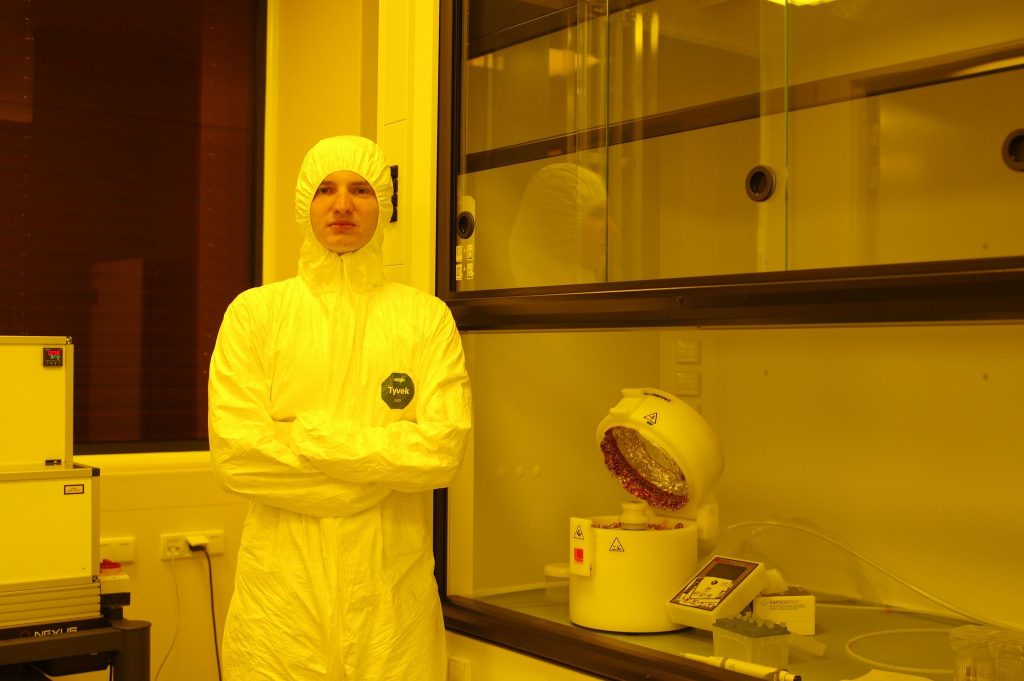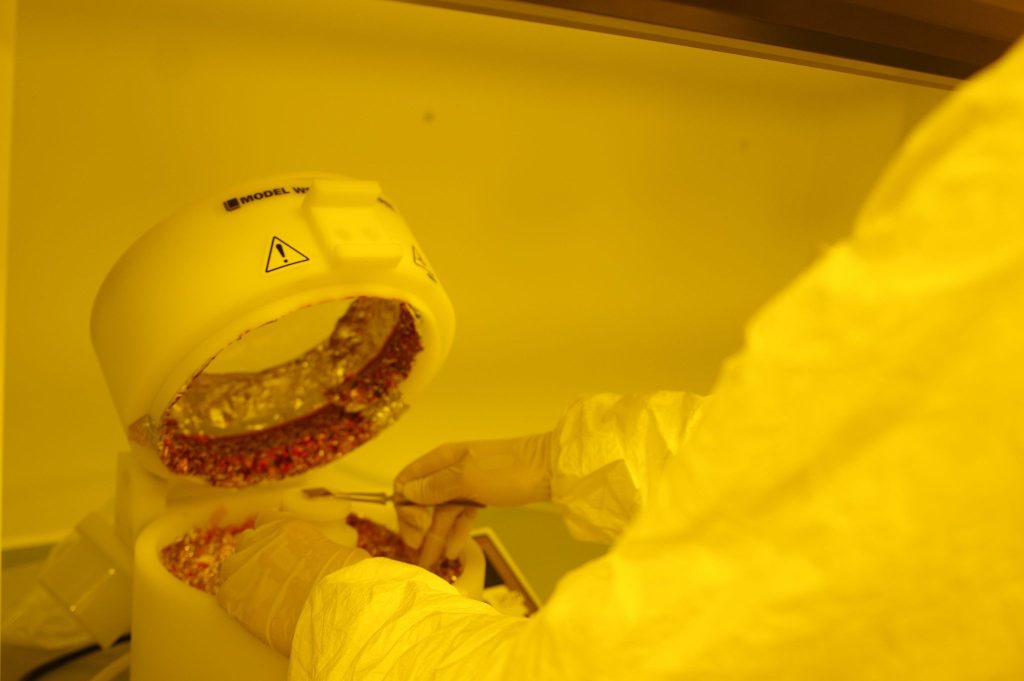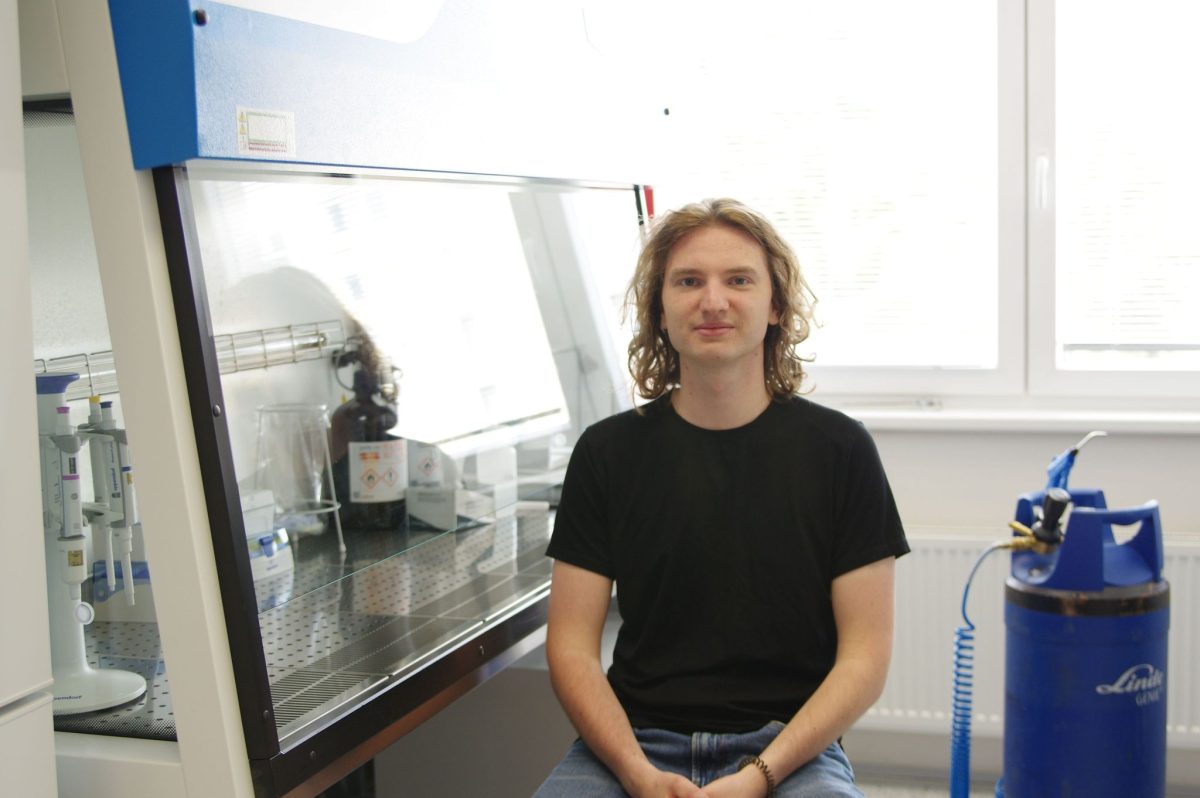Benjamin is a student at the University of Chemistry and Technology in Prague, yet he managed to successfully complete an internship at the Institute of Physics (FZU) in a team of top physicists. His ambitions initially went in a different direction, but thanks to his experience at FZU, he decided to stay, and today he is a full-fledged member of the team.
What does your internship at the Institute of Physics involve?
My main job is creating ultra-thin layers for applications in biosensors. A significant part of my agenda is cleaning glass. Given that the layers I work with are about 50 nanometers thick, the glass onto which these layers are subsequently placed must be perfectly clean. And of course, some time is spent planning experiments and subsequently processing experimental data.
What is the use of the research you are engaged in?
It should be noted that this is fundamental research, not applied research, which means we are verifying theoretical foundations. The results of our research will provide information to other research groups who will create something using the mentioned nanolayers.
Why did you choose to do an internship at the Institute of Physics?
Honestly, I needed a job and was looking for a job related to what I am currently studying, that is, chemistry. Since many of my friends work at the Institute of Organic Chemistry and Biochemistry, I started looking there. After a brief survey, however, I found that none of the research groups appealed to me, so I started looking for jobs at other institutes of the Academy of Sciences and discovered the Radius Center. I was immediately interested in several offered groups, but most of all in the one I am currently in. My second choice would have been the research group led by Ms. Lísalová, who also deals with biosensors, the difference being that her research is applied.

Why did you choose Prague for your studies and career?
First of all, I planned to come here mainly for my studies. In addition, the research in Prague seems to me to be at a very high level. When I came to the Institute of Physics, I found that a very pleasant plus was also the laboratory equipment, and since I was ultimately satisfied with all aspects, I haven’t thought about any other alternative yet.
How satisfied are you with your choice of internship?
To be honest, it’s something completely different from what I expected and planned to do, but it’s more of a positive surprise. In chemistry, I have so far worked with micro-liquid solutions and now I am working with surfaces. The research I am currently engaged in is quite different from regular chemical research, and therefore I had to learn to change my thinking, the way I thought about experiments and the identification of individual products. You could say I gained a new perspective thanks to it, so in the end, I am very satisfied.
Was there anything you were worried about before starting your internship?
Yes, I was quite stressed about working with physicists. I am not a physicist but a chemist; I look at things and phenomena from a chemical perspective, not a physical one, and therefore it sometimes happens that I don’t exactly understand what they are doing, but I am slowly getting used to.
Was there anything that pleasantly surprised you?
The approach of people at our Institute. We have very good relationships with colleagues, and within their capacity, they are always willing and happy to help me with everything I need, explain things I don’t understand. If I have any problem, I know I can turn to them. From the beginning, they quickly and easily accepted me as a full-fledged team member, and thanks to that, I enjoy going to the internship very much.

Would you recommend the internship to your friends?
Absolutely yes. I would recommend it to anyone, even to people who don’t yet know exactly what they want to focus on. It’s great that as students we have the opportunity to try it out, for example, just for one or two semesters and find out if it’s something we would like to pursue in our work. Moreover, the experience is always useful.

